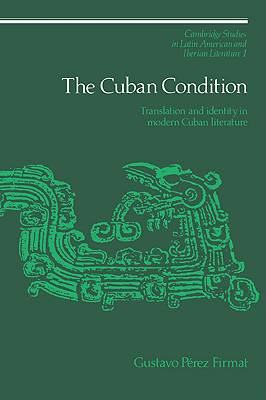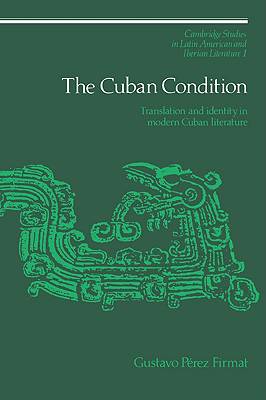
- Afhalen na 1 uur in een winkel met voorraad
- Gratis thuislevering in België vanaf € 30
- Ruim aanbod met 7 miljoen producten
- Afhalen na 1 uur in een winkel met voorraad
- Gratis thuislevering in België vanaf € 30
- Ruim aanbod met 7 miljoen producten
Zoeken
€ 70,95
+ 141 punten
Omschrijving
The sense of the radical newness of Spanish America found in literary works from the chronicles of the conquest to the work of the criollistas has more recently given way to a stronger recognition of the transatlantic roots of much Spanish-American literature. This indebtedness does not imply subservience; rather, the New World's cultural and literary autonomy lies in the distinctive ways in which it assimilated its cultural inheritance. Professor Pérez Firmat explores this process of assimilation or transculturation in the case of Cuba, and proposes a new understanding of the issue of Cuban national identity through revisionary readings of both literary and non-literary works by Juan Marinello, Fernando Ortiz, Nicolds Guillén, Alejo Carpentier and others, dating from the early decades of the twentieth century, a time of intense self-reflection in the nation's history. Using a critical vocabulary derived from these works, he argues that Cuban identity is translational rather than foundational and that cubanía emerges from a nuanced, self-conscious recasting of foreign models.
Specificaties
Betrokkenen
- Auteur(s):
- Uitgeverij:
Inhoud
- Aantal bladzijden:
- 196
- Taal:
- Engels
- Reeks:
- Reeksnummer:
- nr. 1
Eigenschappen
- Productcode (EAN):
- 9780521027328
- Verschijningsdatum:
- 2/11/2006
- Uitvoering:
- Paperback
- Formaat:
- Trade paperback (VS)
- Afmetingen:
- 152 mm x 229 mm
- Gewicht:
- 294 g

Alleen bij Standaard Boekhandel
+ 141 punten op je klantenkaart van Standaard Boekhandel
Beoordelingen
We publiceren alleen reviews die voldoen aan de voorwaarden voor reviews. Bekijk onze voorwaarden voor reviews.











